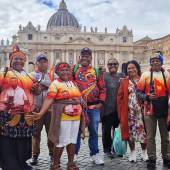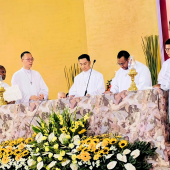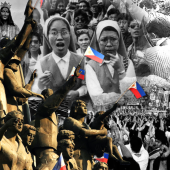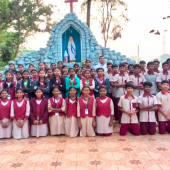Echoes from Yaramanda: A 75,000-Year Indigenous Legacy
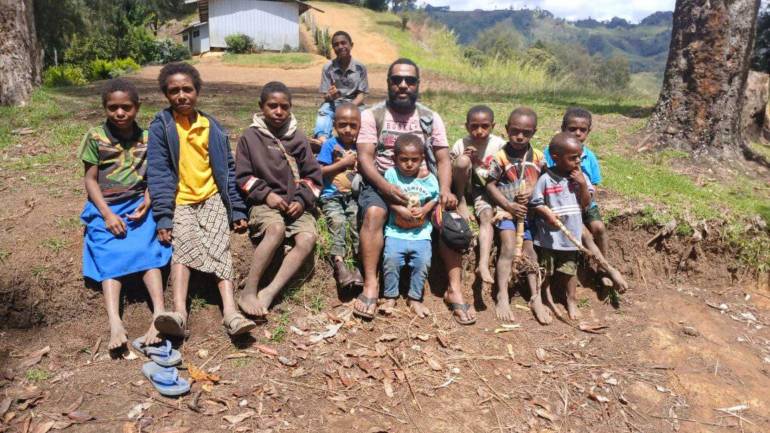
Forgotten Custodians of an Ancient Land
In the mist-laced highlands of Papua New Guinea, in a remote place known as Yarra Mander, lives one of the world’s oldest living indigenous communities—the Malipin Angalean Yaramanda people. Oral histories and emerging archaeological perspectives trace their roots back an astounding 75,000 years, making them more than just custodians of the land. They are a living link to humanity’s deep past.
Yet despite their ancient lineage, they have been politically and legally invisible in the formation of the modern Papua New Guinean state. From the Papua Act of 1905 to independence in 1975, the Malipin Angalean were neither consulted nor acknowledged. Their ancestral wisdom has been revered in ritual but ignored in law.
75,000 years in the Highlands
Long before civilizations rose on the Nile or the Indus, the ancestors of the Malipin Angalean people were living, planting, singing, and praying in the lands now called Enga Province. Their oral traditions—rich with star lore, migration epics, and origin myths—speak of an existence in harmony with the earth and sky.
While mainstream archaeology debates exact timelines, the cultural memory of the Malipin Angalean people aligns with growing evidence of early human migration into Sahul (ancient Australia and New Guinea). Sacred caves, stone tools, and ceremonial sites around Yaramanda speak to a spiritual and scientific heritage that spans deep into prehistory.
Unlike Aboriginal Australians, the Malipin Angalean remain largely absent from global discussions about ancient peoples, despite sharing equally ancient origins.
Land as Spirit, Not Property
To the Malipin Angalean, the land is not owned—it is alive. Every mountain, stream, and tree in Yarra Mander holds sacred significance. Their cosmology speaks of “Angalean” spirits—primordial beings who shaped the landscape and embedded spiritual power into its features.
Their sense of place is not mapped by borders but by ancestral storylines. Sacred ceremonies like the Sangai, where elders recount the Dreaming paths and pass on spiritual responsibilities, reaffirm this bond between generations and geography>
Erased by laws and excluded from history
With the passing of the Papua Act (1905) and the New Guinea Act (1920), colonial powers redrew borders and imposed governance structures. The Papua and New Guinea Act (1949) merged these territories, paving the way for a unified administration. Nowhere in these transformations were the sovereign rights of highland tribes—like the Malipin Angalean—acknowledged.
Governed without consent, categorized by distant bureaucrats, and overlooked by missionaries and anthropologists alike, the Malipin Angalean lived outside the legal imagination of the state. Their spiritual petitions, sung in ritual and carved in memory, were never translated into legal recognition.
Independence Without Inclusion
When Papua New Guinea gained independence in 1975, it was a milestone for the nation—but a moment of exclusion for the Malipin Angalean. No elders were consulted. No treaties were signed. They did not hold any referendums.
Many describe that moment as a “political abduction”—a forced entry into a modern nation-state they did not consent to join. For some, 1975 was not liberation but another colonization—this time by elites in Port Moresby rather than Canberra.
A Culture on the Brink
The Ipi Angalean dialect, a unique linguistic branch of the Engan language family, is now endangered. Few fluent speakers remain, mostly elders above 50. Education systems fail to integrate the language, and younger generations increasingly grow up speaking Tok Pisin or English.
Rituals like scarification, tooth avulsion, and warrior dance ceremonies are fading. Christian influence has replaced many traditional beliefs, although some clans still quietly practice ancestral spirituality.
Yet amidst decline, hope emerges. Cultural revival projects like Yaramanda Heritage Camps are teaching youth traditional skills—wood carving, herbal medicine, and storytelling. Elders are recording oral histories with smartphones, preserving them for future generations.
Struggles for Recognition
Today, the Malipin Angalean Yaramanda people remain unrecognized as a distinct indigenous group within either Papua New Guinea or Australia. Their customary lands are under threat—from mining projects, legal disputes, and government development plans.
One major conflict involves a proposed mine near sacred Angalean mountain sites in Pogera. Community leaders argue this would desecrate ancestral land and violate rights guaranteed under the UN Declaration on the Rights of Indigenous Peoples.
The tribe has submitted appeals to international bodies, demanding recognition and redress for incorporation without free, prior, and informed consent.
A Cry for Restorative Justice
The Malipin Angalean are not asking for independence or sovereignty. They are asking for acknowledgment of their existence, their history, their land rights, and their exclusion.
They call for
-
A formal apology from both the Australian and Papua New Guinean governments
-
Recognition as a First Nation
-
A commission of inquiry into their exclusion during independence.
-
Educational reforms should be implemented to teach the language and history of the First Nation.
-
Customary land title protection for sacred sites
Echoes That Refuse to Fade
Seventy-five thousand years is not just a number—it is a legacy of resilience, memory, and spiritual sovereignty. The Malipin Angalean Yaramanda have survived ice ages, colonization, and marginalization. Still, they sing the sacred songs of their ancestors—songs the world must now learn to hear.
As Pope Francis reminds us in Laudato Si’ and Querida Amazonia, the wisdom of indigenous peoples is not a museum relic—it is a key to healing our planet. In the voices of the Malipin Angalean, we hear not only ancient truths but also a prophetic call for justice.
Radio Veritas Asia (RVA), a media platform of the Catholic Church, aims to share Christ. RVA started in 1969 as a continental Catholic radio station to serve Asian countries in their respective local language, thus earning the tag “the Voice of Asian Christianity.” Responding to the emerging context, RVA embraced media platforms to connect with the global Asian audience via its 21 language websites and various social media platforms.









